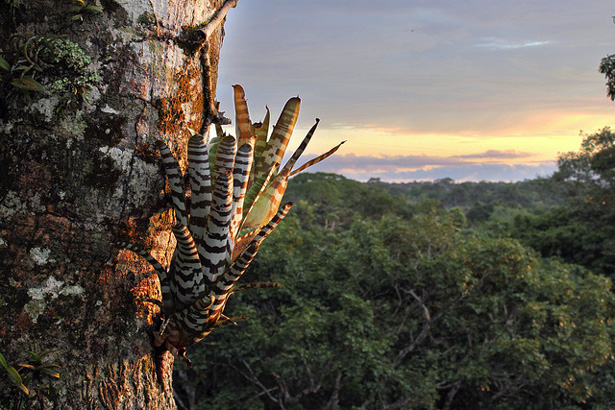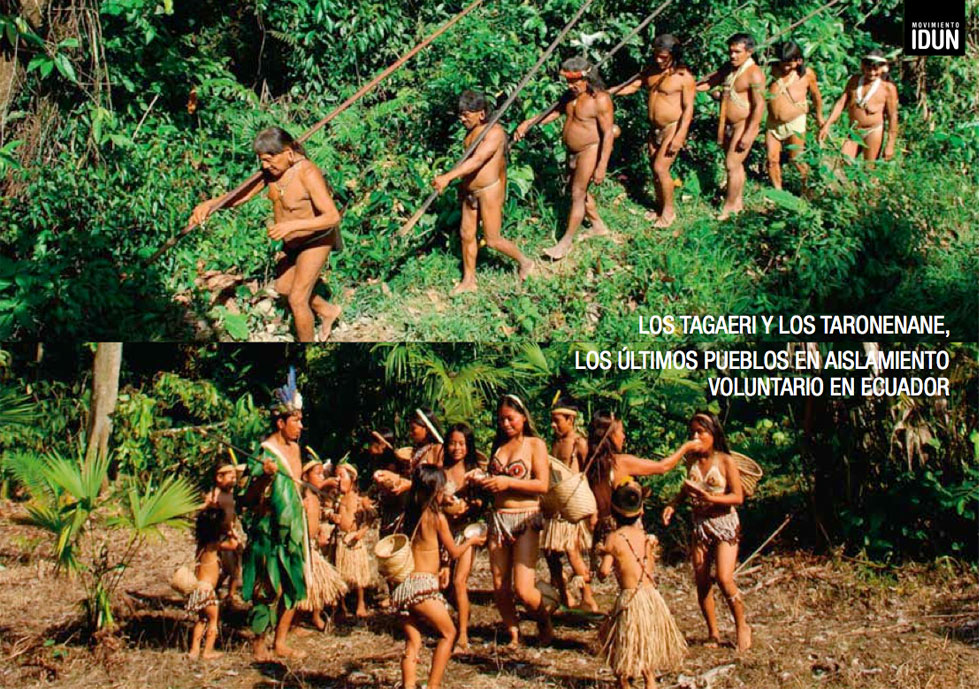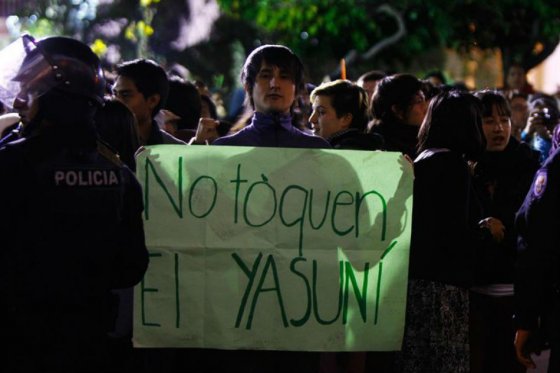Anti-oil activists in Ecuador: we stand up for Yasuni!
- September 22, 2013
Climate & Catastrophe
The world’s most biodiverse area risks being exploited for its oil by the “revolutionary” government of Rafael Correa. But he faces strong resistance.
- Author
The script of this story is almost too obvious. The most biodiverse spot on the planet, the Yasuní National Park in Ecuador — and in particular an area called ITT — lays on top of precious oil. A poor country’s greedy government threatens to exploit it. Voluntarily isolated indigenous people who have never been contacted also live in this region. Those indigenous people are warriors and would fight for their territory to death. As I am writing this I am thinking that all the elements in this story might remind us of the film Avatar. But in that story it was much easier to identify the bad guys riding supersonic spaceships and fighting against those blue gigantic indigenous who would use dragons to fly. This story is a bit more complicated.
Rafael Correa has been Ecuador’s President since 2007, with at least 4 more years ahead of him. Prior to Correa, Ecuador experienced over 10 years of intense political instability, which included more than 6 presidents ousted over that period. But what started as a “revolutionary” leftist government which has permanently claimed rights and respect in the name of sovereignty, has recently started to signal authoritarianism, corruption, nepotism as well as other typical signs of a power-hungry government. Lately, the Ecuadorian government, with Rafael Correa as its main figure, keep saying that “everybody who is not with me, is against me and the revolution.”
Coming back to the stage where this story takes place, it is important to mention that ecology and respect for the indigenous communities do not go together with oil drilling. This is particularly clear in Ecuador. Ecuador’s relation with oil drilling started over 40 years ago. Just one example of the what has happened in the Amazonian region in the East of the country since then is Chevron’s systematic dumping of more than 18 billion gallons of oil into the rainforest, in what has been called the worst ecological disaster in history, with thousands of people left dead and thousands more sick due to polluted water. The destruction of the forest has left very little revenue to Ecuador and even less to its people. Petroamazonas, the Ecuadorian public enterprise in charge of oil exploration and drilling, admitted that one spill occurs every week. After 40 years of oil exploitation, Ecuador is still a poor country.
What makes the characters in this story particularly difficult to define as the “bad guys”, is that not all of them were always willing to intervene in this highly sensitive area in exchange for money. President Correa himself devoted his first intervention to the UN General Assembly in 2007 to this topic. Using the same charm as years ago in New York or Rio de Janeiro during the Rio+20 global conference, President Correa announced on August 15 this year that he has been forced to start drilling oil in the most sensitive zone of the Yasuní National Park, claiming that “the world has failed us.” As a matter of fact the initiative was pretty much boycotted by the government itself.
Throughout the years, contradictory signals were sent, a low-skilled team was appointed, mining projects all over the country were given to Chinese and Canadian companies, Ecuador participated in oil-promoting international negotiation rounds. This, among other things, weakened the veracity of the initiative. Following the announcement, Correa and some of his government ministers have stated that those indigenous voluntarily isolated have actually disappeared, taking off the table the fact that an ethnocide is imminent once the oil drilling starts. All of the arguments presented to promote the initiative initially were taken back, including modifying official maps.
As expected, a massive propaganda campaign followed Correa’s announcement. Claiming that oil drilling will only affect 0.1% of the Yasuní area, TV spots and radio commercials are broadcast every day on prime-time, followed by a strong social media campaign. One of the several spots shows a baby handed by its mother to be vaccinated. The Ecuadorian government actually compares a toddler being vaccinated to oil drilling. In the Amazonian provinces, where entire communities have paid the price of oil drilling with their health and life — including those impacted by Chevron’s oil damages — have been put up with the slogan “oil builds a better future.” The government is actually trying to convince us that those (supposedly) 18 billion dollars will contribute enormously to eradicate poverty. How is it that since Correa came to power the national budget has been over US$150 billion and people in Ecuador are still poor?
 In Quito and many other cities across the country, youngsters, artists, civil society organizations and indigenous groups have organized demonstrations against the intervention in Yasuní. This social movement has been fighting for the rights of nature and against transgenic food, neoliberalism, imperialism and others, and is now standing up to defend the park. The government has reacted furiously against the protesters, even resorting to violent police repression. All sorts of threats have been announced including controlling social media and leaving students out of school if they dare to participate in demonstrations. President Correa even reacted through his Twitter account against international commentators who showed their disapproval. Everybody who is not with the government is automatically considered its enemy.
In Quito and many other cities across the country, youngsters, artists, civil society organizations and indigenous groups have organized demonstrations against the intervention in Yasuní. This social movement has been fighting for the rights of nature and against transgenic food, neoliberalism, imperialism and others, and is now standing up to defend the park. The government has reacted furiously against the protesters, even resorting to violent police repression. All sorts of threats have been announced including controlling social media and leaving students out of school if they dare to participate in demonstrations. President Correa even reacted through his Twitter account against international commentators who showed their disapproval. Everybody who is not with the government is automatically considered its enemy.
And so, without blue indigenous people riding dragons to stop the destruction of the most bio-diverse spot of planet Earth, we stand up. We stand up to say that we won’t allow an ethnocide to happen in front of our eyes. We stand up to tell President Correa that even if the world failed Yasuní, he is responsible for the impact that oil drilling will have on this area and the planet. We stand up to those who have historically betrayed our constitution. We stand up for a referendum where the people of Ecuador will say “no!” to the destruction of nature and the habitat and livelihoods of indigenous peoples. Because we believe that a different Ecuador and a different world are possible; a planet where nature doesn’t need to be destroyed and people don’t have to die so others can drive. We believe in a post-oil planet.
Source URL — https://roarmag.org/essays/yasuni-park-protest-ecuador/
Further reading
Wasim’s story and the cruel fate of refugees in Greece
- ROAR Collective
- September 23, 2013
Golden Dawn and the extremism of the center
- Jerome Roos
- September 21, 2013



